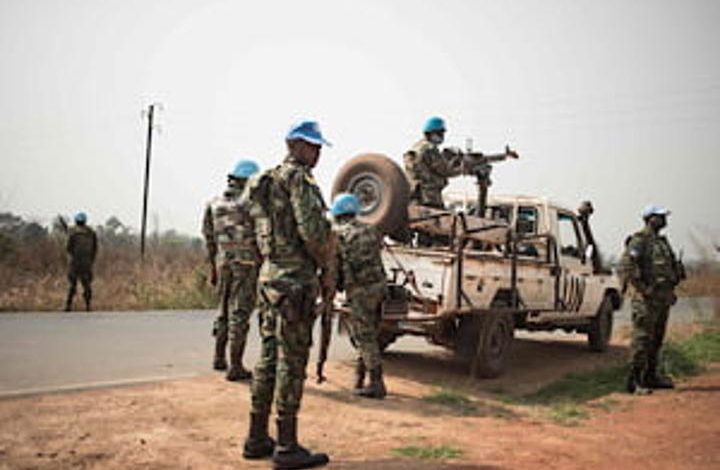UN Security Council Authorises Increase In MINUSCA Forces In CAR By 3,000
The addition will see MINUSCA forces in CAR increasing to over 17000, as they continue to fight rebels in the country.

The United Nations Security Council Friday, March 12, authorised the increment of soldiers of the United Nations Organisation Multidimensional Integrated Stabilization Mission in the Central African Republic (MINUSCA) by 3,000 personnel.
The UN Security Council resolution, which was drafted by France, authorising the increase, was adopted by 14 of the Council’s 15 members with Russia abstaining. No reason was given by the Russians.
The resolution envisages the augmentation of the number of MINUSCA forces by 2,750 soldiers as well as 940 policemen.
The increase would bring the total number of MINUSCA forces in the country to 14,400 soldiers and 3,020 police officers.
MINUSCA is already one of the largest deployment of the Blue Helmets in the world, financed by a budget of almost one billion US dollars annually.
The new reinforcements were demanded last December by the UN Secretary General, Antonio Guterres, following the step up of attacks by rebel armed groups on government forces with a view to toppling the government of President Faustin Archange Touadera in Bangui.
The resolution underlines that the Blue Berets reinforcements “have as objective, to reinforce the capacity of the MINUSCA in accomplishing its priorities”, namely “the protection of civilians and to facilitate the transportation of humanitarian assistance.”
The reinforcements also have as one of their goals, to assist the MINUSCA “in avoiding and to oppose if necessary, a future deterioration of the security situation, at the same time creating a space for progress in the political process”, the resolution states.
The Security Council resolution comes two days before the holding of the second round of legislative elections in the Central African Republic tomorrow Sunday, March 14.
In mid Dec. last year, six of the 14 rebel armed groups occupying two-thirds of the country since 2013, launched an offensive against the regime of President Touadera who was re-elected in Dec. 2020.
During the Dec. 2020 legislative election, only one voter out of three eligible voters was able to vote due to insecurity created by the rebel armed groups.
The political class in Bangui is of the opinion that if it is taking this long for the armed groups to be defeated, it is because of an embargo on arms supplies to the warring factions including the internationally recognized government of President Touadera.
The government has since called for the lifting of the embargo and the UN Security Council resolution of yesterday “noted the demand by the Central African authorities for the lifting of the embargo”, but recalled the “necessity to ensure the protection, control, management, traceability and responsibility of arms, ammunitions and military equipment that would be transferred to them.”
Summary not available.
Support Our Journalism
There are millions of ordinary people affected by conflict in Africa whose stories are missing in the mainstream media. HumAngle is determined to tell those challenging and under-reported stories, hoping that the people impacted by these conflicts will find the safety and security they deserve.
To ensure that we continue to provide public service coverage, we have a small favour to ask you. We want you to be part of our journalistic endeavour by contributing a token to us.
Your donation will further promote a robust, free, and independent media.
Donate HereStay Closer To The Stories That Matter





The world must see and hear peace.